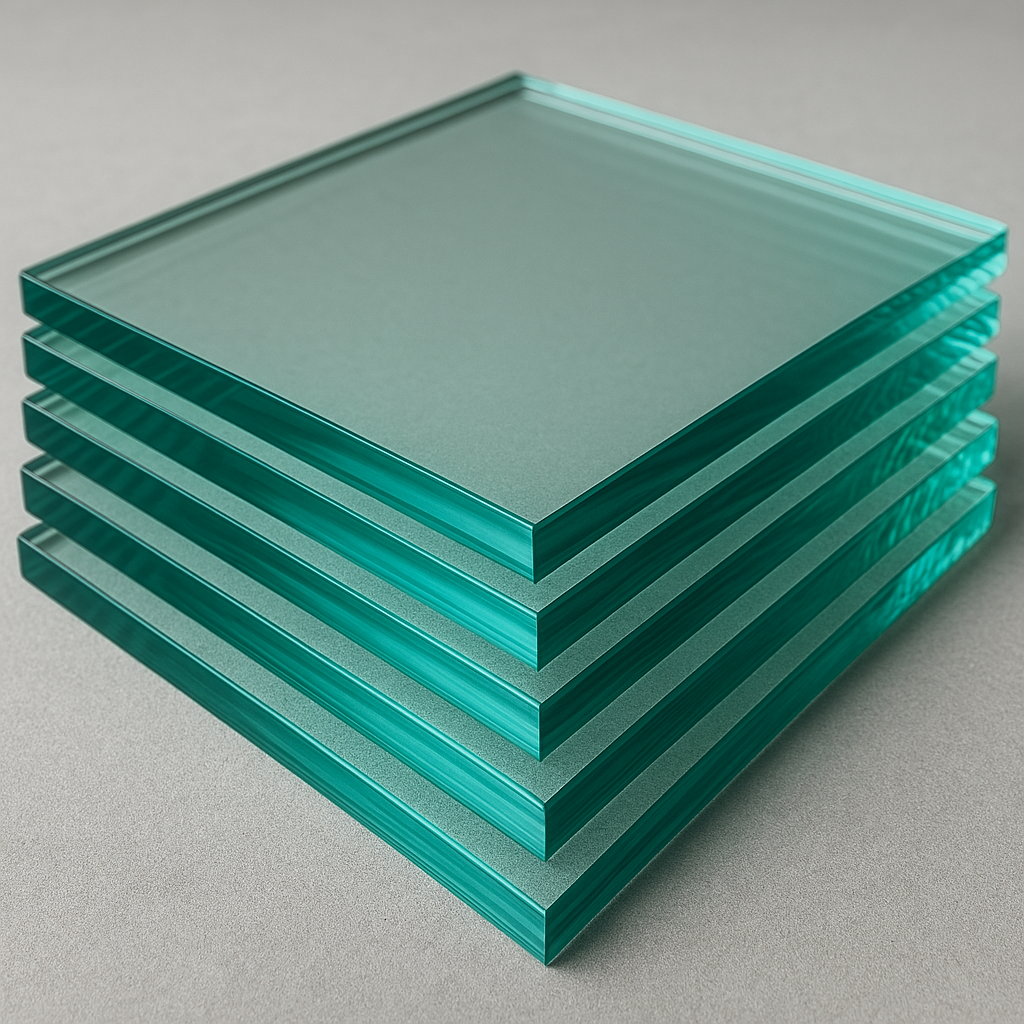The float glass industry has witnessed significant growth, particularly in regions like the UAE and the Mediterranean. Known for innovation and quality production, these areas have become prominent players in global glass markets. In this article, we’ll explore the dynamics, key manufacturers, market trends, and opportunities shaping the float glass industries within these regions.
Understanding Float Glass
Before exploring regional markets, it’s crucial to understand precisely what float glass is. This type of glass, known for its exceptional clarity and uniform thickness, is produced using a distinctive method that involves floating molten glass on a bed of molten tin, resulting in incredibly smooth and flawless glass surfaces.
The Float Glass Manufacture Process
The float glass manufacture process involves several critical steps:
- Batch Preparation: Combining raw materials such as silica sand, soda ash, limestone, dolomite, and recycled glass.
- Melting & Refining: Heating these ingredients at temperatures up to 1,500°C in specialized furnaces.
- Float Bath: Pouring molten glass onto molten tin to create a smooth surface with precise thickness.
- Annealing: Slowly cooling the glass to eliminate internal stress.
- Cutting and Inspection: Cutting the cooled glass sheets to specific dimensions, followed by rigorous quality inspections.
Float glass is ideal for architectural, automotive, solar energy, and interior design applications due to its quality, strength, and optical clarity.
Float Glass Industries in the UAE
The United Arab Emirates has rapidly become a strategic hub for float glass manufacture, driven by robust economic growth, strong infrastructure, and increasing domestic and international demand.
Emirates Float Glass: Leading the UAE Industry
At the forefront is Emirates Float Glass (EFG), part of Glass LLC, a subsidiary of Dubai Investments PJSC. Established in Abu Dhabi, EFG has earned a reputation for producing high-quality float glass designed for a wide range of commercial applications, from construction to automotive industries.
Key Features of Emirates Float Glass:
- Modern Technology: Utilizing advanced European manufacturing technologies.
- Sustainability: Commitment to environmentally friendly practices and energy efficiency.
- Product Range: Diverse products including clear, tinted, reflective, and energy-efficient glass.
EFG’s strong market presence underscores the UAE’s competitive advantage in the global float glass industry.
Factors Driving UAE Float Glass Growth
Several factors fuel the robust expansion of float glass industries in the UAE:
- Booming Construction Sector: Major infrastructure projects and urban development initiatives in Dubai and Abu Dhabi heavily rely on float glass products.
- Sustainable Building Initiatives: The demand for energy-efficient glazing and solar glass is rising, spurred by green building regulations.
- Export Market Growth: The strategic geographic position facilitates trade, making the UAE a leading exporter of float glass to neighboring Middle Eastern and African countries.
Challenges Faced by UAE Glass Manufacturers
Despite positive growth, the industry also faces specific challenges:
- Energy Consumption: High energy costs related to glass production processes can affect profitability.
- Environmental Regulations: Increased environmental scrutiny demands continual investment in sustainable manufacturing techniques.
- Global Competition: The influx of lower-priced imports from Asia and Europe poses a competitive challenge.

Float Glass Industries in the Mediterranean Region
Like the UAE, the Mediterranean region significantly influences global float glass industries. Notably, Mediterranean countries—including Italy, Spain, France, Egypt, and Turkey—host some of the most advanced float glass production plants in Europe and Africa.
Mediterranean Float Glass Market Overview
The Mediterranean float glass industry benefits from geographic advantages, highly developed logistics networks, and access to diverse markets. Mediterranean manufacturers supply various sectors, including construction, automotive, interior design, and renewable energy.
Major Players in Mediterranean Float Glass
Several companies dominate float glass production in this region:
- Saint-Gobain (France, Spain, Italy): A multinational leader offering innovative glazing solutions, high-quality glass products, and advanced energy-efficient technologies.
- Şişecam Group (Turkey): Renowned globally for its extensive glass production capacity, Şişecam specializes in clear and tinted float glass for architectural and automotive use.
- Guardian Glass (Spain, Italy, Egypt): A significant global player, Guardian Glass focuses on premium float glass for architectural, automotive, and specialized applications.
Growth Factors in the Mediterranean Float Glass Industry
Several factors contribute to the strength and development of the Mediterranean float glass market:
- Infrastructure Expansion: Increased investments in infrastructure, especially in Southern Europe and North Africa, drive float glass demand for architectural applications.
- Automotive Industry Growth: Mediterranean automotive manufacturers rely heavily on local float glass suppliers for automotive windows and mirrors.
- Proximity to Key Markets: Mediterranean manufacturers benefit from close access to European, Middle Eastern, and African markets, reducing transportation costs and enhancing competitiveness.
Applications of Float Glass Across Industries
Float glass is valued for versatility and quality, serving multiple industries effectively:
Architectural and Construction Applications
Float glass products include window panes, façades, internal partitions, skylights, and glass plate doors. Builders and architects prefer float glass for its aesthetic appeal, clarity, strength, and durability.
Automotive Industry
Automotive applications prominently feature float glass, used extensively in windshields, side windows, rear windows, and mirrors due to its clarity, consistency, and durability.
Solar Energy and Renewable Technologies
Increasing emphasis on renewable energy technologies has boosted the use of float glass in photovoltaic panels. Specialized float glass enhances solar energy efficiency and reliability.
Interior Design and Furniture
Interior designers employ float glass extensively in creating sleek glass furnishings, mirrors, decorative panels, and high-end interior fittings, emphasizing clarity, elegance, and sophistication.
Future Opportunities and Trends in Float Glass Manufacture
The UAE and Mediterranean float glass markets are positioned for continued growth, influenced by several emerging trends:
- Increasing Demand for Sustainable Products: Heightened environmental awareness is prompting greater adoption of eco-friendly and energy-efficient glass products.
- Technological Innovations: Advances such as smart glass, solar control glass, and high-performance glazing solutions offer substantial growth opportunities.
- Growth in Renewable Energy Sector: The global pivot toward renewable energy significantly increases demand for specialized solar glass produced via the float glass method.
Conclusion: Strategic Importance of UAE and Mediterranean Float Glass Industries
The float glass industries in the UAE and Mediterranean regions are integral components of global manufacturing sectors, showcasing innovation, sustainability, and consistent market growth. Leading manufacturers such as Emirates Float Glass, Saint-Gobain, Guardian Glass, and Şişecam exemplify the industry’s global relevance and regional strength.
Continued investment in technology, sustainability initiatives, and targeted product innovations positions the UAE and Mediterranean regions as influential players, shaping the future of glass manufacturing globally.
Explore more about float glass manufacture and gain deeper insights into float glass and its global significance.

